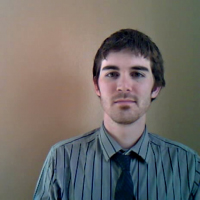From the Editor: Defining America

These “From The Editor” letters are our chance to explain Out Front’s perspective as an organization, but I’m not one to go on about details of our jobs like who does what, what’s easy or hard about working here, our private opinions on issues and so forth.
Truthfully, what’s “behind the scenes” in the little blue building across the street from Tracks would make a pretty dull TV drama – think less The Newsroom, and more The Office. The interesting and inspiring stories come from the people and experiences we find out in our community; that’s what we find rewarding and what we’re here to talk about.
But in this case I’ll lift the veil for this issue’s cover story, Queer America, about the people and neighborhoods outside the Colorado communities we normally focus on. Though broad, abstract or sweeping stories are most–effectively told through anecdotes, “America” is really complicated. There are so many different layers of diversity and experiences out there that even a 15–part documentary series featuring hundreds of individuals would leave gaping holes. It was daunting thinking about depicting what and who LGBT America is in just six profiles – three pages of text – mostly focused on places we aren’t well–connected in.
That’s no reason not to do this story – in a community–oriented publication, the conversation about what’s happening in our culture is the core of what we do. We don’t decide what the “answers” are, but if we ever put a thumb on the scale it should be to nudge the conversation toward considering new ideas – always looking for what, and who, is being left out of the mainstream consciousness. That faith in human beings that when knowledge and understanding is broadened we rise to new occasions, is not only a component of a journalistic ethic but also of an activist ethic, an anti–oppression ethic, a community–building ethic and a spirit of arts and humanities in general – all part of what Out Front exists for.
That starts with recognizing that if you asked people to close their eyes and imagine “an American” (if you’d like, stop before you read on and try it yourself) – then quizzed them on what their imaginary American looks like – a disproportionate number of us would describe a straight, white, born–citizen, middle–class male. Despite such self–imaginings, this country has never been that.
Slightly more than half of the U.S. population is women or girls, and almost 30 percent is people of color. More than 10 percent of us are immigrants. According to a 2011 Williams Institute report, fewer than 4 percent identify openly as LGBT, though 11 percent acknowledge some same–sex attraction. People of color identify as LGBT at higher rates – possibly because the younger generations are both more racially–diverse and willing to come out – and means that the LGBT community in particular has no “default” or “generic” race or identity.
There is no “LGBT America” without black, Latino, Asian and Native American voices, without bisexual and trans people, without young people and elders. This is a drum I beat often, but I’ll tell you – it’s not to be moralistic but that it’s the single biggest area within the scope of what we do at Out Front where the dominant consciousness differs from reality. To add another layer, the diversity of those experiences still falls short of the differences within those experiences, and kinds of experiences that don’t have names.
In the middle of developing this story, we realized we weren’t going to cover everyone we should; there’s no way to fit every kind of identity into six people and still have them be relatively “representative” of the general population. It has to be a continuing commitment and process in planning every story and reflecting on it when it’s done.
I see a parallel in history. With today’s perspective, we wouldn’t call any great advancement in awareness or social justice a completion of what America is, or the ultimate inclusion of everyone. Maybe what defines this country isn’t who’s on “the list” of who we’re calling Americans, but what we’re collectively doing: the neverending task of defining ourselves more inclusively.




